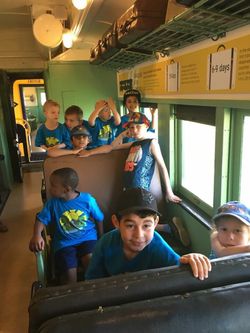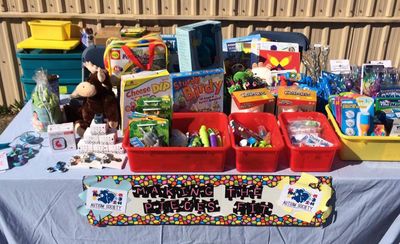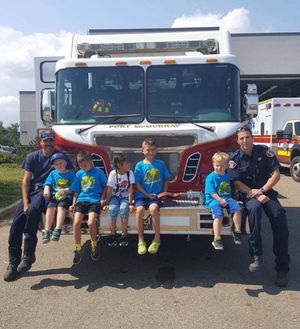Reflection
 It’s the beginning of a long journey when you recognize that something about your child is very different. It’s a shock to hear the diagnosis of autism. It’s so challenging to make sure your child has all the advantages and opportunities he or she deserves. It’s beyond challenging to understand and live with different ways of perceiving, to find ways of coping that work for your child, your family, your community, yourself. And it’s an uphill slog to make sure your adult child has a good life.
It’s the beginning of a long journey when you recognize that something about your child is very different. It’s a shock to hear the diagnosis of autism. It’s so challenging to make sure your child has all the advantages and opportunities he or she deserves. It’s beyond challenging to understand and live with different ways of perceiving, to find ways of coping that work for your child, your family, your community, yourself. And it’s an uphill slog to make sure your adult child has a good life.
 But what I will take away with me, as I step down at this year’s AGM, is the love, the passion, the energy and the vision of our members and of the people who have served on Autism Alberta’s board of directors. Their thoughtful work has opened doors in communities across the province. Throughout the province our members have made connections and commitments that have resulted in real changes in the autism landscape. From the Autism Alberta Alliance, to the Autism Lifespan Clinic, to the Autism Ambassadors Replication Project, to upcoming changes in AISH, to researching Who Will Take Care of Our Kids, Autism Alberta’s directors have put heart and soul into creating a better world for our children with autism and the families that love them.
But what I will take away with me, as I step down at this year’s AGM, is the love, the passion, the energy and the vision of our members and of the people who have served on Autism Alberta’s board of directors. Their thoughtful work has opened doors in communities across the province. Throughout the province our members have made connections and commitments that have resulted in real changes in the autism landscape. From the Autism Alberta Alliance, to the Autism Lifespan Clinic, to the Autism Ambassadors Replication Project, to upcoming changes in AISH, to researching Who Will Take Care of Our Kids, Autism Alberta’s directors have put heart and soul into creating a better world for our children with autism and the families that love them.Back to School!
 At the end of this month, we are starting Grade 3! Every year I learn more about how to prepare Conor, myself and his school for the new school year. I’ve picked up lots of great tips and advice from friends along the way, too. So, here are some of the things that I am doing to prepare for next week:
At the end of this month, we are starting Grade 3! Every year I learn more about how to prepare Conor, myself and his school for the new school year. I’ve picked up lots of great tips and advice from friends along the way, too. So, here are some of the things that I am doing to prepare for next week:-
Talk about going back. I started doing this two weeks before the start of school just to prepare him. We marked the date very clearly on his calendar!
-
Start doing a little bit of schoolwork. Conor loves reading, so we have been doing that all summer. Writing is a very different story, though! We have a ‘holiday journal’ where he can practice by writing just a few sentences about his day. I have also been getting him to practice typing and learning where letters are on a keyboard by texting friends to invite them to play.
-
Go to the school playground. We are going to ‘research’ some recess games that he can play with friends.
-
This year Conor will take the school bus with his younger brother, and to help him prepare, he attended the First Rider program. Several school districts, including our own, have launched this program to explain the rules of travelling on the bus. It was so good for him to attend, and I now feel more at ease!
-
Go back-to-school shopping. I am always trying to work on life skills with Conor, and this year I am taking him clothes and shoe shopping to give him a say in what he chooses to wear. I pick our places to go carefully. The mall is way too overwhelming, so we will go to some local stores which are smaller and have a much calmer environment. We are lucky that his school uses online ordering for school supplies, so I don’t have to worry about that!
-
Prepare his ‘all about me’ folder. We meet with his teacher a few days before school starts, and I have found this to be so helpful in settling those back to school worries. He gets to see his new room, choose his seat and get to know his teacher. Then all he has to think about is who will be in his class. He finally gets to meet his classmates on the Meet The Teacher night, and on the first day back he does not have to cope with all of these other concerns. We break this process down into steps, which works really well for us.
-
Talk about lunches and snacks. I want him to tell me what he wants to bring so he will eat at school! This means spending time looking on Pinterest and going to the grocery store.
A Busy Summer for Autism RMWB
 Adults on the Autism Spectrum were invited to join us for a Pizza Date on June 10th at the Autism RMWB office. It was a great opportunity for the Society to gather ideas for new programs and activities geared to the adults in our community. We had a wonderful time with everyone who could come, and we got to enjoy live entertainment from a local artist, and, of course, great pizza!
Adults on the Autism Spectrum were invited to join us for a Pizza Date on June 10th at the Autism RMWB office. It was a great opportunity for the Society to gather ideas for new programs and activities geared to the adults in our community. We had a wonderful time with everyone who could come, and we got to enjoy live entertainment from a local artist, and, of course, great pizza!Home Hardware donated all the supplies needed for a hot dog stand, and our stand helped us raise more than $1000 over one weekend!


 For August 12th and 30th we are at the Urban Market, where we sell our sensory store items. It’s a great way to meet a lot of new people in the community and let them know what our Society has to offer.
For August 12th and 30th we are at the Urban Market, where we sell our sensory store items. It’s a great way to meet a lot of new people in the community and let them know what our Society has to offer.
-
Support 4 Moms Society monthly support meetings
-
A bottle drive on September 17
-
On September 22-23, a hot dog and hamburger stand sponsored by Superstore
-
An October Halloween Paint Night
-
A movie night with kids
780-742-4424
Who Will Take Care of Our Kids (When We No Longer Can)? – Part 4
In last month’s instalment of Who Will Take Care of Our Kids, we talked about housing supports that can help create better lives for adults with autism. In this month’s excerpt, we’ll be sharing other types of supports that have shown promising results.
 A variation on this network model was found in British Columbia, where families have the option to create their own microboards to support their child or adult with a disability. A microboard is a formal non-profit society made up of committed family and friends who help an individual plan a life course, and can become an entity through which paid services and supports are provided. The main difference between these two models is that a microboard is incorporated as a nonprofit society. In British Columbia, PLAN and Vela Microboards work together, and some families belong to both.
A variation on this network model was found in British Columbia, where families have the option to create their own microboards to support their child or adult with a disability. A microboard is a formal non-profit society made up of committed family and friends who help an individual plan a life course, and can become an entity through which paid services and supports are provided. The main difference between these two models is that a microboard is incorporated as a nonprofit society. In British Columbia, PLAN and Vela Microboards work together, and some families belong to both. Many stakeholders suggested that families need to have something on file that summarizes every aspect of their loved one’s life, including the medications they require, contact lists that include medical and support workers, sensory diets, behavioural triggers, interests, and many other unique needs that allow for a good quality of life. When parents are in need of a break or unable to support their adult, the designated coordinator or support person could access the “manual” with details of the individual. A manual or an app that enables families to simply “fill in the blanks” to create a synopsis of their child or adult to pass on to future caregivers would assist in communicating key information and the unique needs of each individual. This would be especially helpful for those who are non-verbal, low-IQ, or who otherwise have difficulty communicating their needs.
Many stakeholders suggested that families need to have something on file that summarizes every aspect of their loved one’s life, including the medications they require, contact lists that include medical and support workers, sensory diets, behavioural triggers, interests, and many other unique needs that allow for a good quality of life. When parents are in need of a break or unable to support their adult, the designated coordinator or support person could access the “manual” with details of the individual. A manual or an app that enables families to simply “fill in the blanks” to create a synopsis of their child or adult to pass on to future caregivers would assist in communicating key information and the unique needs of each individual. This would be especially helpful for those who are non-verbal, low-IQ, or who otherwise have difficulty communicating their needs.Next month, we’ll be talking more about the gaps that exist in the supports that are currently available for adults with ASD.
We Want to Hear From You!
Autism Canada is Looking at Seniors and Aging Through A
Global Lens

This fall, Autism Canada will co-host a Later Life ASD Think Tank in partnership with the Pacific Autism Family Network and the Autism Research Institute. This invitation-only event will bring together key stakeholders to examine the medical, neurological, mental health and quality-of-life issues facing aging adults on the autism spectrum.
 The objective is to take a multidisciplinary and inter-professional approach to identifying concerns and strategizing solutions to begin building a framework for best practices for our aging population. In order to garner the best and most innovative information possible, invitations have been extended to clinicians, researchers and self-advocates from the Netherlands, Australia, Great Britain, the United States and Canada. The invitees are some of the most knowledgeable individuals in the world regarding the lifespan needs of autistic adults.
The objective is to take a multidisciplinary and inter-professional approach to identifying concerns and strategizing solutions to begin building a framework for best practices for our aging population. In order to garner the best and most innovative information possible, invitations have been extended to clinicians, researchers and self-advocates from the Netherlands, Australia, Great Britain, the United States and Canada. The invitees are some of the most knowledgeable individuals in the world regarding the lifespan needs of autistic adults.-
Has a free weekly e-newsletter that covers autism news, research, events and inspiring quotes.
-
Is very active on Facebook, Twitter, Instagram and LinkedIn.
-
Has over 90 presentations online on Vimeo and YouTube by self-advocates, clinicians, professionals and researchers.
-
Has an online screening tool for toddlers, children, teenagers and adults.
-
Has a National Event Calendar where autism organizations across Canada post their conferences, workshops, symposiums and training opportunities.
-
Has the most comprehensive online autism service directory – Autism Junction.
Sweat for Autism

 Join us for our Sweat for Autism, a marathon-style fitness fundraiser that will be held on August 27, 2017 at the No More Excuses fitness studio (8111 43 St NW, Edmonton), with events running from 8:30 am until 5:30 pm. Along with fitness challenges, there will also be BBQ from 11:30 am to 2:00 pm, massages available on-site for participants, and prizes for the top three fundraisers (1st prize valued at $500+, 2nd prize valued at $300+, and 3rd prize valued at $200+). Keynote speakers and VIP introductions will take place during the BBQ.
Join us for our Sweat for Autism, a marathon-style fitness fundraiser that will be held on August 27, 2017 at the No More Excuses fitness studio (8111 43 St NW, Edmonton), with events running from 8:30 am until 5:30 pm. Along with fitness challenges, there will also be BBQ from 11:30 am to 2:00 pm, massages available on-site for participants, and prizes for the top three fundraisers (1st prize valued at $500+, 2nd prize valued at $300+, and 3rd prize valued at $200+). Keynote speakers and VIP introductions will take place during the BBQ. Interested? Join the challenge now! Hurry up – the number of tickets available is limited!
Interested? Join the challenge now! Hurry up – the number of tickets available is limited!
The Thief
In June of 2014, my beautiful daughter Alex and I were abruptly introduced to psychosis. Out of nowhere, screaming voices relentlessly inundated her with frightening thoughts. Her uninvited guests told her that “today is the day you are going to die” and gave her instructions to ”get out of the house” or “go up” in elevators. She would get lost in buildings or leave the house in her pajamas. She developed crippling anxieties which caused her to bolt on walks, in parking lots, jump into oncoming traffic, or try to suddenly exit a moving car. The voices were coming from inside the walls, out of dresser drawers, and from behind the clothes in the closet. We would have to terminate trips to her favorite places because her anxiety would explode two blocks away and she would beg to return home. Her world closed in tight and hard. It was treacherous to transport her, and she could not keep the jobs she fought so hard to get. She became unpredictable, and she lost her treasured independence when we had to watch her every moment of the day. She lost enjoyment of activities because her thoughts became too fragmented to focus. Eventually she could no longer communicate and spoke in “word salad” – a constant stream of unrelated and repetitive words strung together in an endless sentence. The psychosis, the Thief, stole her life, shattered her future and extinguished her connection with everything she loved.
 Trying to get treatment for Alex was torture. When psychosis arrived, we were advised to get her to a hospital within four hours, and were sent to a hospital emergency room with a “short” wait time. After many hours, Alex was having tremendous difficulty waiting, and kept spontaneously exiting. We gave up waiting around 1:00am. After that, we saw Alex’s own doctor. He tried to prescribe antipsychotic medications, but she reacted adversely, and he dropped the attempt. He told me to “take her home and keep her safe, even if you have to nail the windows shut.” I could not accept that there was nothing we could do. I called in support staff to accompany Alex and me to the hospital for a second attempt at the emergency room.
Trying to get treatment for Alex was torture. When psychosis arrived, we were advised to get her to a hospital within four hours, and were sent to a hospital emergency room with a “short” wait time. After many hours, Alex was having tremendous difficulty waiting, and kept spontaneously exiting. We gave up waiting around 1:00am. After that, we saw Alex’s own doctor. He tried to prescribe antipsychotic medications, but she reacted adversely, and he dropped the attempt. He told me to “take her home and keep her safe, even if you have to nail the windows shut.” I could not accept that there was nothing we could do. I called in support staff to accompany Alex and me to the hospital for a second attempt at the emergency room. Finally, in May of 2015, almost 11 months after the onset of psychosis, we discovered how to gain hospital entry by not following instructions. How so? She spent 2 ½ months in the locked ward for persons with drug-induced psychosis, because the waiting list to get into an appropriate ward was two years. An autistic and psychotic person needs a controlled, low-stimulation environment, and this ward was the complete opposite of that. There is no gentle way to admit a developmentally delayed person to a psychiatric hospital in Edmonton. Alex was funneled through a triage ward along with all the patients who gained entry by being a danger to themselves or others. She was completely traumatized by this entry, and it affected her deeply. She slept with her coat, purse and shoes on for years afterward just because the hospital stripped them from her in triage. In the end, Alex came home saturated with drugs and in worse shape than when she went in. But now she was both dangerously incapacitated and still psychotic.
Finally, in May of 2015, almost 11 months after the onset of psychosis, we discovered how to gain hospital entry by not following instructions. How so? She spent 2 ½ months in the locked ward for persons with drug-induced psychosis, because the waiting list to get into an appropriate ward was two years. An autistic and psychotic person needs a controlled, low-stimulation environment, and this ward was the complete opposite of that. There is no gentle way to admit a developmentally delayed person to a psychiatric hospital in Edmonton. Alex was funneled through a triage ward along with all the patients who gained entry by being a danger to themselves or others. She was completely traumatized by this entry, and it affected her deeply. She slept with her coat, purse and shoes on for years afterward just because the hospital stripped them from her in triage. In the end, Alex came home saturated with drugs and in worse shape than when she went in. But now she was both dangerously incapacitated and still psychotic.Coping with Stress: A Web-Based Mindfulness Group for Parents of Adults with ASD

Time: 1-2:30pm Eastern Standard Time
Dates: September 26th to October 31st
You will be able to participate in the group virtually using your home computer and a telephone line that connects you with the group facilitators and other parents.
If this is something you might be interested in learning more about, please click here:
https://www.surveymonkey.com/r/MindfulnessParentGroups
Alternatively, you may contact Megan at: megan.abouchacra@camh.ca or at 416-535-8501 ext. 37832
School’s Out Forever… What Do We Now?
Navigating Life After Graduation for Those With ASD
Maureen Bennie
From the Autism Awareness Centre Inc. Blog:
 Once the last few weeks of summer roll around, parents start thinking about the transition to back to school. If your child has graduated, the road ahead can feel daunting without the daily structure of school. Finishing school is a big life transition. It can be difficult for those with ASD to jump right into post-secondary education or employment once school finishes. Some individuals with autism may not be able to work or pursue further education due to the severity of their disability. Others may be able to continue their education or find employment but need time to acquire additional skills.
Once the last few weeks of summer roll around, parents start thinking about the transition to back to school. If your child has graduated, the road ahead can feel daunting without the daily structure of school. Finishing school is a big life transition. It can be difficult for those with ASD to jump right into post-secondary education or employment once school finishes. Some individuals with autism may not be able to work or pursue further education due to the severity of their disability. Others may be able to continue their education or find employment but need time to acquire additional skills.a comfortable home
- good health
- meaningful relationships
- being safe in the community
- working at something enjoyable
- participating in leisure activities
- feeling a sense of security about the future
- Make a list of your child’s interests. Think about what could be related to these interests in terms of activities. For example, my daughter is interested in working with cats so once a week, she goes to a Cat Cafe to see what caring for cats is all about. We got her a cat two years ago to help her build cat care skills. She also attends local cat shows to learn about breeds.
- Find a physical activity. Exercise is important for lowering anxiety and improving health. Visit your local recreational center to see what’s on offer. Community centers often have yoga or group fitness classes at a nominal cost. Our children enjoy swimming, bowling and biking and they do those activities weekly. Both kids want to learn how to golf.
Join a club or group. Clubs are a great way to meet other people who share a similar interest. There are book clubs, gaming groups, bird watchers, sports clubs, bowling leagues, movie clubs – the list is endless. They also offer opportunities for socializing.
- Volunteer. Volunteering is a great way to build employment skills and can lead to a paying job. My children have been volunteering at a farmers’ market for 6 years which has been a great addition to application forms.
- Join an adult support group. Other parents going through the transition process can be great sources of information. Sometimes support groups have guest speakers from local agencies. It’s also a great forum to ask questions.
- Explore arts and culture. Every city or town has special events that could help to expand interests. Our son attends free music concerts, participates in drumming once a week, and has a pass to a museum since exhibits are always changing. Our daughter is interested in dance and wants to take an art class.
- Visit your local library. Libraries offer much more than just books these days. They have clubs, lectures, show films, and offer classes. The best thing is that libraries are free. I’ve been bowled over by what is on offer.
- Consider continuing education courses. High schools and other institutions offer courses for the community. These can be just for fun or teach a new skill like cooking or photography. These can be a good stepping stone to a post-secondary institution by providing course experience in an adult setting.
Allot time for independent skill development. We’ll be focusing on using public transit to get to activities this fall. Our daughter wants to start baking so we’ll ask her support worker to dedicate time to cooking and shopping for ingredients. Housekeeping skills, grocery shopping, going to the doctor, and using self-checkouts are examples of what could be taught.
- Attend open houses or information sessions at local agencies/organizations. Open sessions are great ways to learn more about what an organization offers. You can also investigate their resource area as there are often brochures about other programs free to take.

 Prepare his ‘all about me’ folder. We meet with his teacher a few days before school starts, and I have found this to be so helpful in settling those back to school worries. He gets to see his new room, choose his seat and get to know his teacher. Then all he has to think about is who will be in his class. He finally gets to meet his classmates on the Meet The Teacher night, and on the first day back he does not have to cope with all of these other concerns. We break this process down into steps, which works really well for us.
Prepare his ‘all about me’ folder. We meet with his teacher a few days before school starts, and I have found this to be so helpful in settling those back to school worries. He gets to see his new room, choose his seat and get to know his teacher. Then all he has to think about is who will be in his class. He finally gets to meet his classmates on the Meet The Teacher night, and on the first day back he does not have to cope with all of these other concerns. We break this process down into steps, which works really well for us.

 a comfortable home
a comfortable home Join a club or group. Clubs are a great way to meet other people who share a similar interest. There are book clubs, gaming groups, bird watchers, sports clubs, bowling leagues, movie clubs – the list is endless. They also offer opportunities for socializing.
Join a club or group. Clubs are a great way to meet other people who share a similar interest. There are book clubs, gaming groups, bird watchers, sports clubs, bowling leagues, movie clubs – the list is endless. They also offer opportunities for socializing. Allot time for
Allot time for